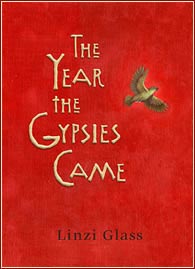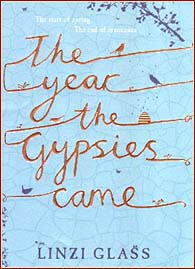

 The Year The Gypsies Came is a story set against the backdrop of apartheid South Africa during the late '60s. It is a highly charged drama about the loss of innocence and how the spirit of a young girl, EMILY IRIS is tested and triumphs in the face of an unexpected family tragedy. Through the gentle words and guidance of BUZA, her family's Zulu night watchman, Emily is able to heal and become whole again.
The Year The Gypsies Came is a story set against the backdrop of apartheid South Africa during the late '60s. It is a highly charged drama about the loss of innocence and how the spirit of a young girl, EMILY IRIS is tested and triumphs in the face of an unexpected family tragedy. Through the gentle words and guidance of BUZA, her family's Zulu night watchman, Emily is able to heal and become whole again.
The story's narration is told through her youthful and observant eyes. It is through Buza's observations and Zulu folktales together with Emily's innocent and clear vision that we gain insight into the dysfunction in Emily's family as well as the dysfunction in a society governed by hate and fragmentation. The underlying theme of the book is fragmentation and what it takes to become whole. Pearls of wisdom about life and how we survive in the face of adversity are passed down to Emily by Buza. Ironically he is the wisest adult in the novel, yet has the least amount of power and honor in the unjust world of apartheid. The contrast of colorful black culture and music is in stark contrast to the superficial and benign culture of the whites. Emily draws her strength and knowledge from the souls of the oppressed.
At the beginning of the story we learn that whenever the tension between her flamboyant parents becomes too great they invite people to come and stay with them in their affluent home in Johannesburg or they are invited to stay on their large property. The presence of house guests seems to dilute the tension between her parents and Emily and her beautiful, older sister Sarah are infinitely happier when strangers are living with them.
In the spring of Emily's twelfth year a "gypsy family"- a wildlife photographer, his unusual wife and their two uneducated and unpredictable boys rattle up their driveway in an old camping trailer and into the Iris family's lives. Emily's world is dramatically transformed and forever changed by the presence of these "gypsies" - wanderers, without roots, without course or direction.
Emily's relationship with Streak, the younger son of their new guests, is filled with love, learning and sweetness. Two such opposite young people, one born tamed the other born in the wilds and yet both share the same sense of inner loneliness in the presence of unavailable parents. Loneliness transforms into enchantment between the two of them in a free exchange of need, friendship and innocent love.
Although set in a specific time and place, this story has timeless and universal themes that touch on our deepest needs and speaks to our greatest desires. Ultimately it is love, in all its many and complex forms, that gives Emily a sense of completeness and it is Buza who is the catalyst for her growth and change.

 The Year The Gypsies Came is a story set against the backdrop of apartheid South Africa during the late '60s. It is a highly charged drama about the loss of innocence and how the spirit of a young girl, EMILY IRIS is tested and triumphs in the face of an unexpected family tragedy. Through the gentle words and guidance of BUZA, her family's Zulu night watchman, Emily is able to heal and become whole again.
The Year The Gypsies Came is a story set against the backdrop of apartheid South Africa during the late '60s. It is a highly charged drama about the loss of innocence and how the spirit of a young girl, EMILY IRIS is tested and triumphs in the face of an unexpected family tragedy. Through the gentle words and guidance of BUZA, her family's Zulu night watchman, Emily is able to heal and become whole again.